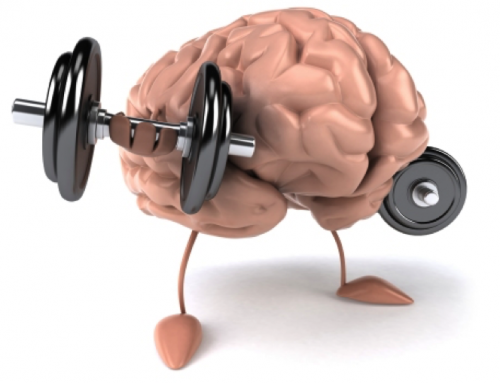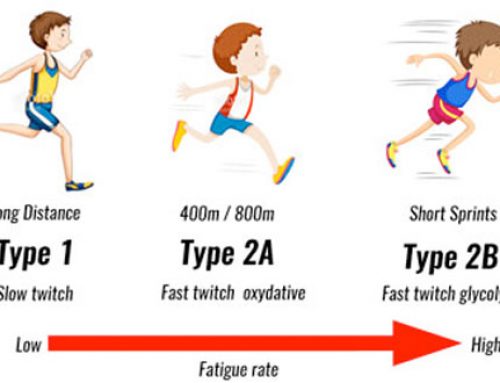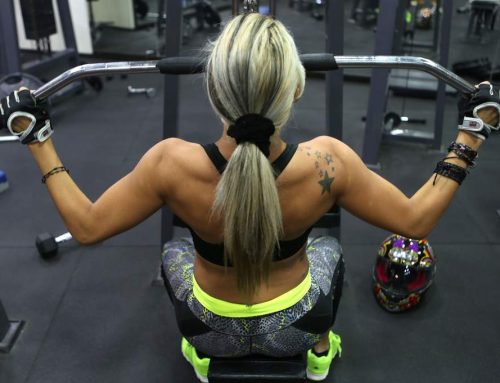1. Boost Your Energy Levels
The healthy bacteria in your gut are vital for breaking dietary fiber down into substances that your body can use1. This includes short-chain fatty acids (SCFAs) such as butyrate, propionate, and acetate.
These are required for numerous processes in the body, such as reducing inflammation, maintaining the lining of the gut and warding off harmful pathogens. And because these SCFAs comprise around 10% of your body’s daily calorie requirements, they also play a major role in supporting your energy levels.
That’s also why it’s important to consume plenty of prebiotic fiber.
2. Improve Recovery Time
After physical exercise, your body needs to repair and rebuild muscle tissue, as well as rehydrate and flush out the lactic acid that may have accumulated in your muscles. It also works hard to get your blood sugar back in balance in order to prevent a post-exercise drop in glucose levels.
That’s where your gut bacteria are needed to break down the lactic acid2 into something more useful. Researchers from Harvard have noted increases in these specific bacteria after runners have completed a marathon. A healthy gut microbiome can help to reduce muscle soreness.
3. Boost Immune Health
Fitness enthusiasts all dread getting ill! Unfortunately, research shows those who engage in regular heavy training are more susceptible to upper respiratory tract infections. This is usually due to the effects that intense exercise has on the immune cells.
However, this can be avoided (or at least reduced) by boosting your gut microbiome3. Up to 80 percent of your immune cells reside in your gastrointestinal tract, so it makes sense to look after them.
Taking probiotics and eating plenty of probiotic-rich foods – with some prebiotics on the side – can go a long way in supporting your immune function.
This is also helpful to reduce any negative effects of intense training, as well as support other areas of immune function in your body (such as your mouth, ears, nose, and throat).
A healthy gut will mean fewer interruptions to your training regimen!
4. Improve Nutrient Absorption
If your body isn’t able to absorb nutrients, you won’t use them! Efficient nutrient absorption is essential for athlete performance and recovery. Absorption is largely dependent on the quality of your gut microbiome, as this is what breaks down the food you eat and allows you to absorb it. Certain bacteria even play a role in creating nutrients within your gut.
Different species of beneficial bacteria are involved with maintaining the intestinal wall, where most of your nutrient absorption occurs. When these bacteria are all in balance, your intestinal wall will be better placed to absorb the nutrients your body needs for energy and regeneration.
5. Support a Healthy Weight
It’s now known that your gut bacteria play a major part in weight management. This is all due to the way your body uses energy as fuel or stores it as fat.
Your gut microbiome influences how your body utilizes nutrients, which has a direct impact on hormone production. The hormones involved with creating feelings of fullness and balancing your blood sugar all have a major impact on your weight.
When your hormones fail to tell you that you’ve had enough to eat, you’ll suffer from hunger cravings and energy crashes. This can lead to overeating, which will, of course, lead to fat gain!
Studies have also shown that the microbiome has a more direct impact on weight. For example, research on identical twins4 has found significant differences in the microbiome where one twin was obese and the other healthy.
6. Prevent Intestinal Imbalances
Another consequence of intense training can be susceptibility to forms of intestinal dysbiosis like SIBO or yeast overgrowth. Being in a constant state of oxidative stress can lead to pro-inflammatory hormonal imbalances and chronic tissue inflammation.
These kinds of conditions are ideal for the proliferation of pathogenic bacteria or Candida yeast in the gut, especially if the intestinal microbiome isn’t being supported.
When your gut falls out of balance, you may end up suffering from symptoms like joint pain, fatigue, blood sugar imbalances, nutritional deficiencies, and poor post-exercise recovery.
Probiotics can help to bring your gut bacteria back into balance and get those bacteria or yeast back under control. In the long term, this will not only improve the nutritional absorption that your body needs, but help reduce the inflammation that may be hindering your performance.
Simple Ways to Improve Your Gut Health
Boosting the health of your gut microbiome begins with your diet. In fact, you may find that implementing a few simple dietary changes, such as adding probiotic-rich foods to your diet, is a powerful way to boost your athletic abilities!
Cut Out Added Sugars
Sugar is fuel for bad bacteria and yeast. Check the nutritional labels on foods and try to avoid products that include sucrose and other refined sugars. There are more than 50 names for sugar, and manufacturers often include three or four of them in their foods. If you need an energy boost, stick to fruit!
You may also like to try stevia or monk fruit extract, natural sweeteners that contain zero sugar or calories. If you’re a snacker, consider baking some low-sugar muffins or making some energy balls on the weekend. That way you’ll always have a snack handy and never succumb to temptation!
Avoid Processed Foods
Many sports drinks and other ‘energy’ products are highly processed. Unfortunately, these may do you more harm than good!
Sports drinks are especially high in artificial ingredients and added flavors. Your body will have trouble recognizing these foreign substances as food, and they tend to lack any real nutritional value.
Try to eat natural, whole foods as much as possible, such as fruits, vegetables, and lean protein. Healthier options for drinks include home-made smoothies and lots and lots of water!







Leave A Comment